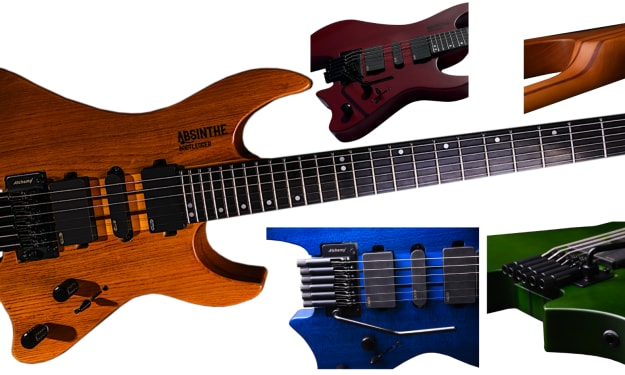The Healing Power of Music
A Journey of Hope and Inspiration

Music is a universal language that speaks to the soul. It has the power to evoke emotions and transport us to another world. But did you know that music also has healing properties? In fact, music therapy is an established form of treatment for various mental health conditions, including depression, anxiety, and PTSD. In this article, we will explore the healing power of music and its journey of hope and inspiration.
Music therapy is a relatively new field that uses music to address physical, emotional, cognitive, and social needs of individuals. It is based on the premise that music can stimulate both the right and left hemispheres of the brain, promoting relaxation, reducing anxiety, and improving mood. Music therapists work with clients to identify their goals and develop a personalized treatment plan that incorporates different music-based interventions.
One of the most common music-based interventions used in music therapy is active music-making. This involves playing instruments, singing, or composing music. Active music-making has been shown to be effective in reducing symptoms of depression, anxiety, and PTSD. It can also help individuals express their emotions and cope with stress.
Passive music listening is another form of music therapy. This involves listening to pre-recorded music that has been specifically chosen to promote relaxation, reduce anxiety, or improve mood. Passive music listening can be done alone or in a group setting. It has been shown to be effective in reducing pain, anxiety, and stress.
Music therapy is a versatile form of therapy that can be used in various settings, including hospitals, schools, and nursing homes. It has been shown to be effective in treating a wide range of conditions, including autism, dementia, and substance abuse. Music therapy can also help individuals with physical disabilities improve their motor skills and coordination.
The healing power of music is not limited to music therapy. Listening to music on your own can also have therapeutic benefits. Music has been shown to improve mood, reduce anxiety, and promote relaxation. It can also help individuals process their emotions and cope with difficult situations.
Music has the power to evoke memories and transport us to another time and place. This can be particularly powerful for individuals with dementia or Alzheimer's disease. Listening to music from their past can help them recall memories and improve their mood.
In addition to its therapeutic benefits, music can also inspire us and give us hope. Music can be a powerful tool for social change and can bring people together. Music has been used as a form of protest and as a way to raise awareness about important issues. It has the power to inspire us to be our best selves and to work towards a better future.
Music has always been an integral part of human culture, and its therapeutic benefits have been recognized for centuries. However, it is only in recent years that music therapy has gained recognition as a legitimate form of treatment for mental health conditions. The growing body of research on music therapy and its effectiveness has paved the way for its integration into mainstream healthcare.
Music therapy is a versatile form of therapy that can be tailored to meet the individual needs of each client. Whether it is active music-making or passive music listening, music therapy can help individuals improve their physical, emotional, cognitive, and social well-being. It can provide a safe and non-invasive way for individuals to explore and express their emotions, cope with stress, and build a sense of community.
Furthermore, the therapeutic benefits of music are not limited to music therapy. Listening to music on your own can also have a profound impact on your emotional well-being. Whether you're feeling down, anxious, or stressed, listening to your favorite music can help you relax, improve your mood, and cope with difficult situations.
Music can also serve as a powerful tool for social change. Throughout history, music has been used as a form of protest and as a way to raise awareness about important social issues. Music can bring people together and inspire them to work towards a better future. In times of hardship and adversity, music can provide a sense of hope and comfort.
The healing power of music is not a new concept, but it is one that is gaining recognition and acceptance in the modern world. The use of music as a therapeutic tool has opened up new avenues for treating mental health conditions and improving overall well-being. It has also highlighted the importance of art and creativity in promoting mental health.
In conclusion, the healing power of music is a journey of hope and inspiration. Whether it is through music therapy or listening to your favorite songs, music has the power to improve your emotional well-being, provide a sense of community, and inspire you to work towards a better future. As the world continues to face new challenges and uncertainties, music will continue to play an important role in promoting mental health and well-being. So the next time you're feeling down or stressed, turn on your favorite song and let the healing power of music take you on a journey of hope and inspiration.
About the Creator
Muhammad Sarib Ali
Sarib is an experienced Content Writer with 5 years of experience in the CNet industry. He is a creative and analytical thinker with a passion for creating high-quality content and crafting compelling stories.






Comments
There are no comments for this story
Be the first to respond and start the conversation.